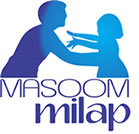WHAT YOU CAN DO AS A PARENT:
 Be Informed: Always know where your children are going, who they are with, what they doing and when they will be back. Ask them about what they are doing when alone with other adults or friends in a non- threatening manner.
Be Informed: Always know where your children are going, who they are with, what they doing and when they will be back. Ask them about what they are doing when alone with other adults or friends in a non- threatening manner.
Be Supportive: Encourage your children to talk to you. Believe your children when they tell you about a child sexual abuse incident. Let them know that they do not need to keep secrets about touching. Let them know that you will not be angry or upset with them for telling.
Be Aware: Recognise warning signs of abuse such as changes in your child’s behaviour and fear of a particular person or place. Children express sexual abuse incidents through various mediums such as drawing, playing and writing.
Be Alert: Child sexual predators often use grooming techniques such as paying special attention to a child, approaching you about your child under false pretences (offering to pick up children from school, or to baby-sit, or to tutor your child) and scouting areas frequented by children like gardens, playgrounds or schools.
Inform Your Children: Talk to your children about safe touch and unsafe touch. Teach them the correct : vocabulary about private body parts- like penis and vagina. Remember this is for their safety- you will not be encouraging sexual behaviour.
WHAT YOU SHOULD NOT DO AS A PARENT:

- Do not get angry or upset if your child tells you about an ‘Unsafe Action’
- Do not have the child confront the abuser or confront the abuser in front of the child
- Do not make the child repeat the incident for family members or otherwise. Respect the child’s privacy.
- Do not ignore the problem or take it lightly; it will not go away.
- Do not blame your child. Removing the child from home/school is not a solution. Though initially you have to remove the child from the abusive environment, you also have to solve the problem.
I Support. I Secure. I Suggest
The campaign is rendered for parents asking them to support the child’s revelation, secure his tomorrow and suggest ways to overcome situations. Its objective is to encourage parents to understand and support their child.
Since children fear to speak up their problems and worries, so parents need to show full support and believe in them in order to secure and protect them from child sexual abuse. Parents need to understand and help their child, as their one suggestion may change their child’s life. Thus, the campaign lays stress on the parent’s responsibility towards their child.
Posters can be displayed in offices and public places frequented by the parent community.





